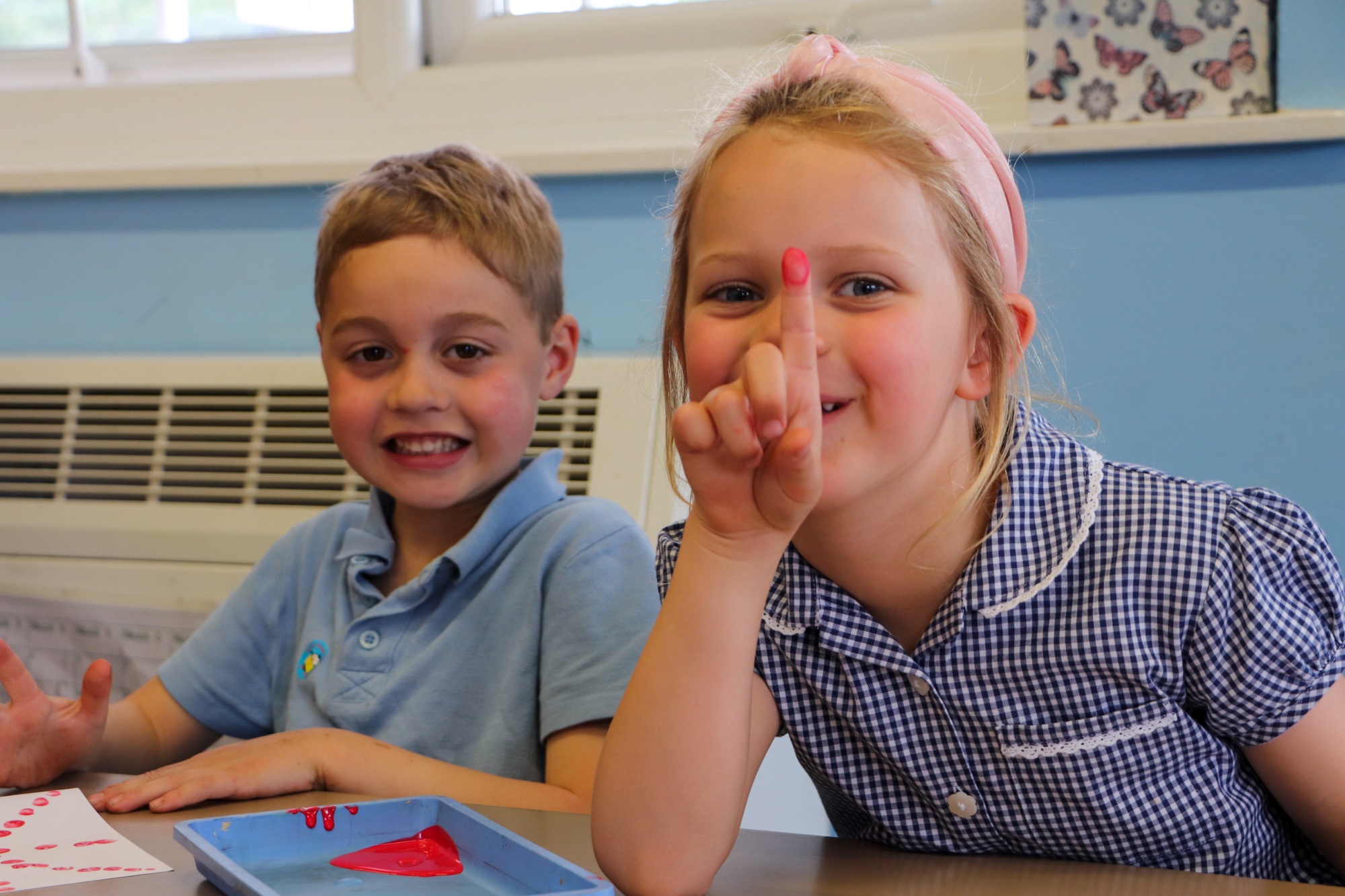Developing Spirituality
As a school, we have defined spirituality as: “Spirituality is not something we can see; it is something we feel inside ourselves. It is about awe and wonder, asking questions, inspiration and being aware of something ‘bigger’ outside of ourselves.”

We believe that is is essential to explore Spirituality by educating the whole child, providing opportunities to be still and reflect, to explore their own spirituality and to respect others' spirituality and much more. Spirituality enables our children to be happy, flourish and succeed and live life in all its fullness.
Across the curriculum, children are encouraged to ask, contemplate and answer Big Questions about life, religion, nature, science and anything about the world that fascinates them. Children become aware of the world in new ways; to wonder about life’s ‘WOWs’ (things that are amazing and breath-taking), ‘NOWs’ (times of stillness) and ‘OWs’ (challenging events that bring us up short).
Supporting your child's Spiritual Development
If you as a parent would like to understand more about supporting your child’s Spiritual Development please look at the video below from the National Institute for Christian Education nicer.org.uk
Fostering spiritual awareness in children can be a deeply personal and meaningful journey. Here are ten ideas to help parents guide their children in developing spiritual awareness:
-
Be a Role Model: Your own spiritual practices and beliefs can influence your children, so model the behaviours and values you want them to embrace.
-
Open Dialogue: Encourage open and non-judgmental conversations about spirituality, allowing your children to ask questions and express their thoughts and feelings.
-
Explore Different Beliefs: Introduce your children to a variety of spiritual and religious traditions, helping them understand the diversity of human beliefs and values.
-
Nature and Mindfulness: Spend time in nature with your children, teaching them to appreciate the beauty and wonder of the natural world. Practice mindfulness together to develop a sense of presence and inner calm.
-
Read Spiritual and Moral Stories: Share age-appropriate books and stories that convey moral lessons, values, and spiritual themes.
-
Family Rituals: Establish family rituals that connect to your spiritual or cultural traditions, such as prayers, blessings, or ceremonies. Make these rituals meaningful and participatory for your children.
-
Encourage Self-Reflection: Help your children develop the habit of self-reflection and journaling. Encourage them to think about their values, beliefs, and the meaning of life.
-
Acts of Kindness: Teach your children about the importance of compassion and kindness by engaging in acts of service, such as volunteering together or helping those in need.
-
Encourage Questions: Welcome and explore your children's questions about spirituality. Help them seek answers and develop their own understanding.
-
Mind-Body Practices: Introduce practices like yoga, meditation, or tai chi to help your children connect with their inner selves and develop a sense of inner peace and balance.
Remember that spirituality is a personal and evolving journey. It's important to respect your children's autonomy and allow them to develop their own beliefs and values as they grow. Creating a supportive and open environment for their spiritual exploration is key to their development in this area.
How do we know spiritual development is effective at Wick?
Spirituality has helped our children to love and respect themselves and enjoy good positive relationships with others. They take an interest and delight in the world around them and openly share their love of learning. They are open to what lies beyond, including in developing their spirituality, and for many, a faith and belief in God.
Wick CE Primary children can articulate the school’s Christian vision and a developing understanding of Christian and positive life values, including British Values. They are able to express, understand and manage their feelings as well as respecting those of others. They have a strong moral compass and engage in courageous advocacy projects as active, caring and responsible citizens. They are able to enjoy quiet and stillness. They possess an active imagination and show joy in creativity and discovering new skills.
The role of Religious Education in Spiritual Development
The Church of England’s ‘Statement for Entitlement’ outlines the aims and expectations for Religious Education in CE schools and guides this school’s approach to RE and spirituality. The role of RE is neither to promote nor undermine organised religion. But part of its purpose is to provide structured opportunity for consideration of the non-material aspects of life. RE can contribute dynamically to children and young people’s education by provoking challenging questions about meaning and purpose in life, beliefs about God, ultimate reality, issues of right and wrong and what it means to be human. It can support their own discovery of their personal spiritual journeys of meaning, purpose and value.
RE allows children to reflect upon and share their own knowledge and lived experiences, plus find out about the experiences, beliefs and traditions of other people. Through this process, children expand their knowledge, begin to shape their own beliefs form opinions and add breadth to their world view.
High quality RE lessons at Wick CE Primary offer children opportunities that challenges their thinking through Big Questions. They critically reflect on their own religious, spiritual and/or philosophical convictions and are equipped with the skills to confidently discuss religious, spiritual and philosophical ideas.
